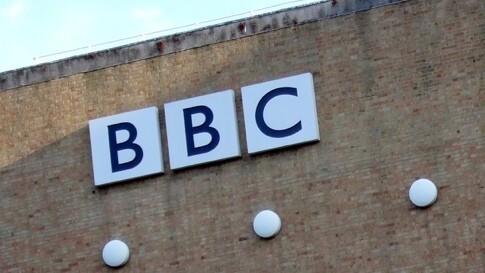
Remember when Intel turned your life into a museum exhibition using your Facebook data? Or when Google put your place of birth into Arcade Fire’s The Wilderness Downtown video? How about when Take This Lollipop warned you – specifically you – about the dangers of social networking? That’s ‘Perceptive Media’, and it’s coming to a TV near you – eventually.
At last night’s SMC_MCR event in Manchester, UK, Ian Forrester of the BBC’s Research and Development department discussed early-stage experiments that are being conducted into bringing Perceptive Media to our TV sets.
Here’s how it would work – a TV signal would be sent, as normal, to your set-top box or TV. However, the hardware in your living room would be able to modify that signal with information about you, to create a subtly different version of what you were watching, personalised for you.
Transforming TV, on the fly
The personalisations made could be just about anything – from inserting photos of you into a picture frame on a wall, to changing the music that plays in a scene to suit your tastes, to inserting additional plot explanation if you’ve missed an episode. It has the potential to transform the way television is made and consumed.
Information about you could be collected via sensors in, or connected to, your TV (Forrester gave Microsoft’s Kinect as an example), and it’s no great leap to assume that existing data from social accounts like Facebook could be used to further personalise the experience.
It’s important to note that the vision being experimented with would emphasise subtle changes that you wouldn’t particularly notice, rather than pasting your face into every scene, or anything so garish. Additionally, content creators would have full control over personalisations that would be made, meaning that they would hopefully slot in seamlessly, simply offering more scope for creativity.
While the BBC’s experiments are at an early stage, it’s easy to see how other parts of the media would be attracted to Perceptive Media. Imagine the fun advertisers could have, tailoring ads to your circumstances and tastes.

Challenges for Perceptive Media
There are many challenges for Perceptive Media right now – for example, if five people with varying backgrounds and tastes were watching together, how would the software know the best way of showing the programme to suit them all? Forrester said that it would take all viewers into consideration and display something that suited them all – but would that really work?
There were privacy concerns expressed by some of the people in attendance at last night’s talk. Would personal data be sent back to broadcasters? While Forrester said that the implementation he was looking at wouldn’t send any data back (it was sent via a standard TV transmission after all), other companies may look at similar systems that were two-way, leading to potential privacy worries.
So, what exactly does the BBC have cooking in its labs? Forrester wouldn’t say precisely, except that it was aiming for “low-hanging fruit” at first, while he showed a picture of a radio on a slide. Perceptive Audio? It’s a possibility, but we’ll have to wait to see what emerges. Whatever the case, this is an early-stage research project, so don’t expect a big launch for the technology any time soon.
UPDATE: Ian Forrester has written up some more on his thinking here.
Get the TNW newsletter
Get the most important tech news in your inbox each week.




